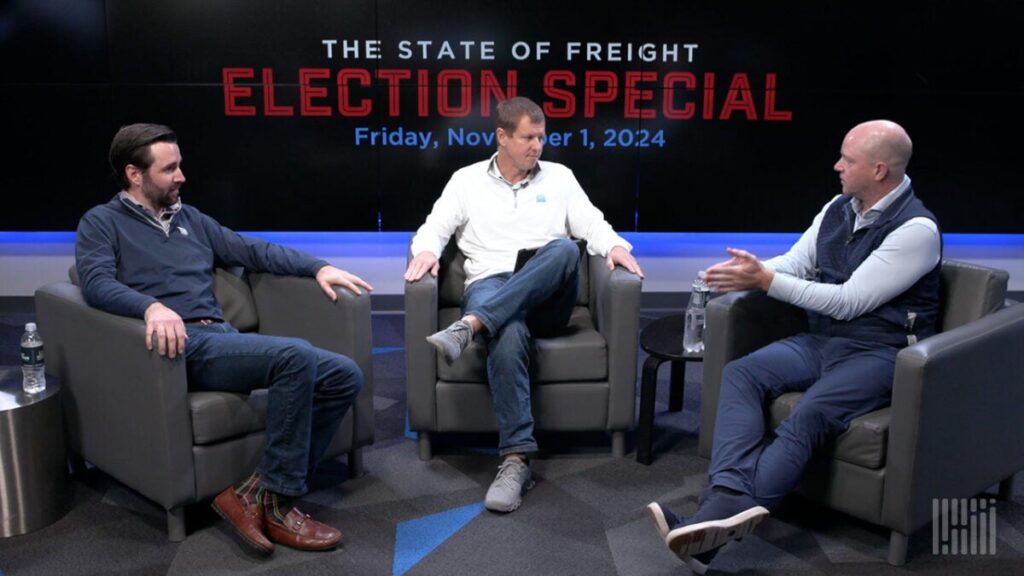FreightWaves SONAR State of Freight hosted a special edition of its monthly webinar Friday to discuss how the outcome of the U.S. presidential election could affect the commercial transportation industry.
With only four days until voters decide between Democrat Kamala Harris and Republican Donald Trump, FreightWaves SONAR CEO Craig Fuller and Senior Analyst Tony Mulvey drilled down on the possible impact of each candidate’s policies on the freight market.
Here are five takeaways from Friday’s discussion.
Federal policies can significantly affect the freight industry in a number of ways, according to both Fuller and Mulvey.
“If you think about the freight economy, it’s so big, it’s so massive, because about 32% of the U.S. economy is tied to logistics-dependent industries,” Fuller said. “It means that these businesses simply cannot exist without logistics, and so policy has an enormous amount of impact on freight.”
Fuller cited policies that shape labor, taxes and tariffs on foreign goods as examples.
“Things like labor policy, whether we’re talking about the port strike that was short-lived and could potentially happen in January, is one thing. Tax policy, which drives goods and manufacturing demand, consumer consumption, those things are actually really important. Tariffs are obviously really important,” Fuller said.
While higher tariffs on imports could be a catalyst to bring more manufacturing back to the U.S., they also have the possibility of hurting companies and consumers, Mulvey said.
“If it’s a blanket tariff, 10%, 20%, it does at some point eat into the company’s profit margins to some degree,” Mulvey said. “Companies are going to offset that by raising prices. I think overall, there is some risk to higher prices on certain goods.”
If Trump is reelected, he has floated the idea of taxes on imports from all countries shipping goods into the U.S. and as much as a 60% tax on imports from China.
How tariffs could affect the transportation industry and the U.S. economy has already been demonstrated in Trump’s first term, Fuller said.
“If you look at what happened during the first Trump administration, we didn’t see rapid inflation,” he said. “There were tariffs put on China during the first administration. This is at a time when the global economy, and particularly the Chinese economy, was doing exceptionally well. Their economy is now at risk of actually contracting. There is a lot of excess capacity in the Chinese economy. So putting these tariffs in place probably means that those Chinese exporters have no choice but to lower the prices to be competitive. Because they don’t, they won’t be able to export anything, and the entire Chinese system is based on exports.”
Read the full article here
